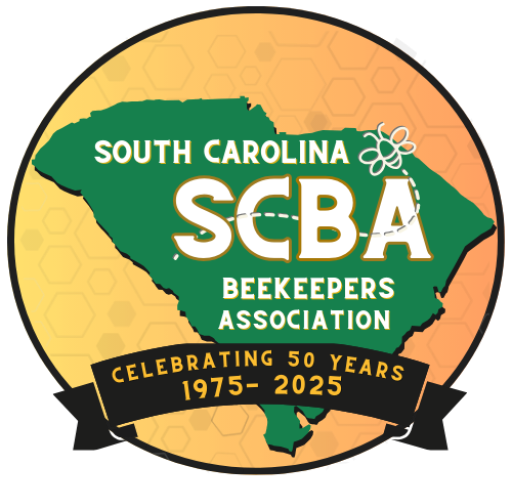New Beekeepers
There are several steps to become a successful beekeeper. One is contact your local beekeeping club. Make that contact to see when a beginner bee class will begin and begin attending monthly meetings.
REQUEST BEEKEEPER CATALOGS AND MAGAZINES
The next step is request beekeeping catalogs (Brushy Mountain, Mann Lake, Dadant, Rossman, and Miller Bee Supply). Those catalogs are very informative and you can familiarize yourself on equipment to purchase.
BUDGET
Set aside a budget of about $500 for all your supplies for one year. That includes, beginner class, two colonies, the woodenware, tools, and protective gear.
LOCATION AND ENVIRONMENT
Start looking for a place to put your bees. Bees need good diverse forage with lots of nectar and pollen. The best situation is different plants that offer blooms all year round. Bees need water, nectar and pollen to produce honey.
PROTECTION
Consider how you can protect your bees from pesticides. You may want to have a conversation with neighbors using pesticides sparingly and make sure they know how to apply any chemicals on their blooming plants.
READING RESOURCES
Buy a beekeeping book or books. We recommend “First Lessons in Beekeeping: Storey’s Guide to Keeping Bees” as a good introductory text. There are a ton of books out there but this a good one that will get you started.
Find a beekeeping mentor that will help you answer any questions you may have.
FOLLOW US ON SOCIAL MEDIA
Follow us on Facebook at SC State Beekeepers. We can help you with questions too. The State Association offers a bee class at our summer meeting. When you become a State Member you will get notification of all our events. Visit our website often to stay informed.
WHEN TO START
The spring is a good place to start keeping bees. So you have time between now and then to research and get involved in the meetings.
GET STARTED
Wow, that is your homework assignment! Get Busy!
What does a honeybee look like?
Honeybees have four wings, two antennae, they have three body sections and six legs. They are usually gold and black in color variation.
Where do they nest?
Honey bee colonies can be managed in boxes and can live inside walls, barns, trees and various other places. Honey bees do not nest in the ground. If they are in a non managed structure, they are usually in a ball surrounding the queen. If they have been there a while, they may have already begun building beeswax comb and would be on the comb.
Do all honey bee colonies have queens?
Yes. There is one queen per colony, 2% are male honey bees and worker bees are girls and make up the 98% of the colony.
What do honey bees do?
The honey bee’s purpose is to survive and keep the colony alive. Honey bees visit flowers and blooms collect nectar and pollen. They bring it back to the hive to produce honey and food for the colony.
Why are honey bees visiting my pool?
Honey bees have to have water to cool the hive and produce honey. Water can be collected from streams, ponds, lakes, water hoses and pools. They also are attracted to salty water. Unfortunately, once a honey bee locates a reliable water source, they will return to it over and over. There are several things you can do to deter them from returning. Make a alternate water source (preferably salty) that they will visit instead of the pool. Run a mist water hose nearby on a plant or bush. Call a local beekeeper to offer other suggestions.
I am allergic to honey bees, what can I do?
Most humans have a reaction from a honey bee sting with red, itchy and swelling. That is a typical reaction. Only 1% of the world’s population reacts to honey bee stings that causes them to go into anaphylactic shock. Honey bee venom is different, you may not react in the same way as with any other stinging insects. If you are stung, Don’t panic! Remove the stinger immediately by scraping it with your fingernail. If you know react with major swelling, have access an anti-histamine or a prescribed epi-pen. If you experience a swelling in your throat call 911. Other concerns such as red blotches radiating from the sting site, dizzy get to emergency medical facility.
I have a concern with my beekeeper in my neighborhood, what can I do?
In a managed colony which is a colony that is kept in a box and controlled by the beekeeper. It is safe for pets, children and adults. Legitimate concerns can be discussed with the beekeeper. There may be alternate beekeeping methods that can be used. If that does not help the situation please contact the State Association. Please include your name, address and other contact information.
If you are have a question about honeybees please contact someone in your local area by accessing the information listed under “Local Associations”. If you need to contact the SC State Association, please use the following contact information:
Larry Haigh
2015-2016 President – SCBA
Email: scstatebeekeepers@gmail.com
Latest News
Summer 2025 Conference Program – Friday
Summer 2025 Conference Program – Friday Current as of 06.12.2025. Note: Schedule is subject to change.
Summer 2025 Conference Program – Thursday
Summer 2025 Conference Program – Thursday Current as of 06.12.2025. Note: Schedule is subject to change.

